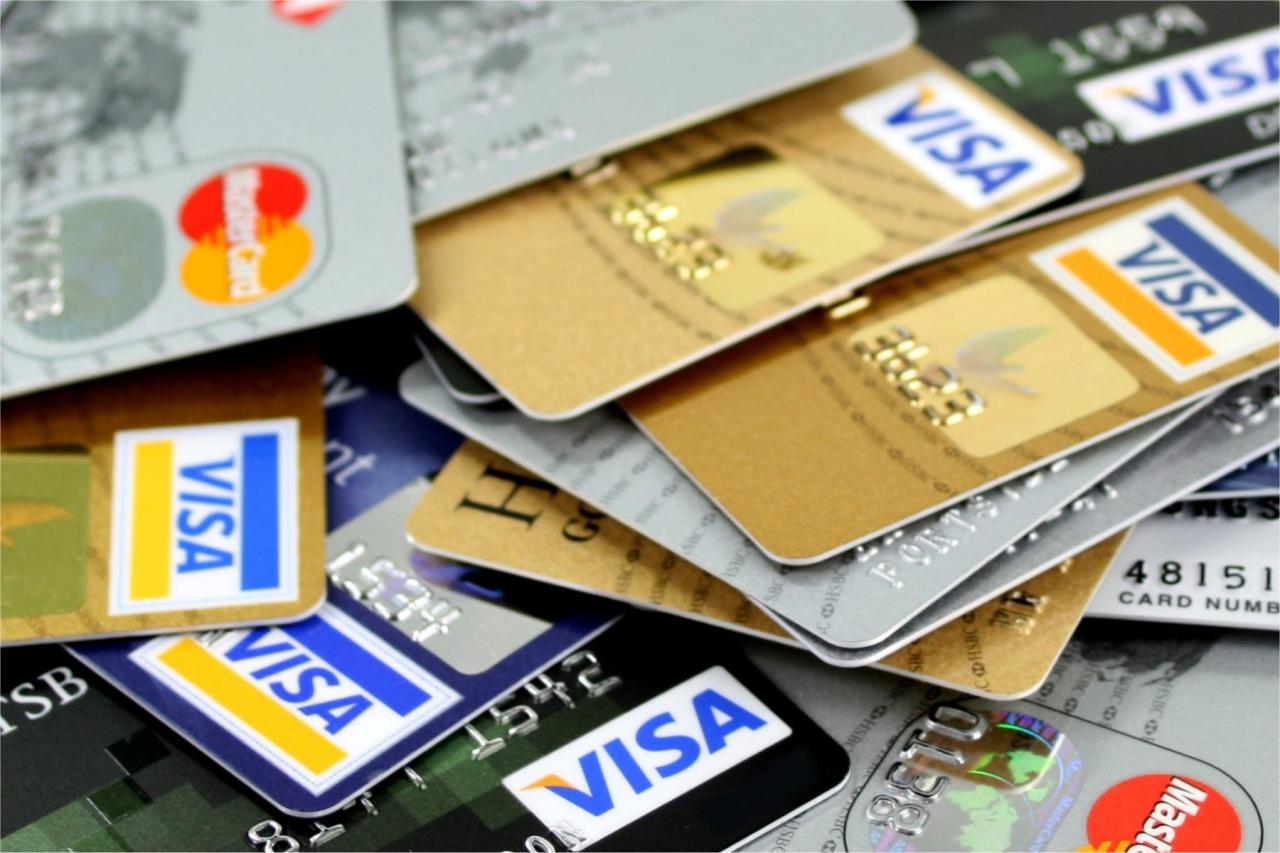Where can I get a business credit card? This is a question many entrepreneurs and small business owners ask themselves as they seek ways to manage their finances effectively. A business credit card can be a powerful tool for building credit, earning rewards, and streamlining business expenses. However, it’s crucial to understand the intricacies of business credit cards before diving in.
Choosing the right business credit card involves careful consideration of your business needs, spending habits, and credit history. Factors such as annual fees, interest rates, rewards programs, and spending limits all play a role in determining the best card for you. This guide explores the essentials of business credit cards, from eligibility requirements to managing your account responsibly, empowering you to make informed decisions.
Understanding Business Credit Cards

Business credit cards are a valuable financial tool for businesses of all sizes. They offer a range of benefits, from building business credit to simplifying expense tracking. However, it’s crucial to understand the nuances of business credit cards and how they differ from personal credit cards.
Key Differences Between Business and Personal Credit Cards
Business credit cards are designed specifically for business use and differ from personal credit cards in several key aspects:
- Eligibility: Business credit cards typically require a business credit history or a personal credit history that meets specific criteria. In contrast, personal credit cards are generally easier to obtain with a good personal credit score.
- Credit Limit: Business credit cards often have higher credit limits than personal credit cards, allowing businesses to make larger purchases and manage their cash flow more effectively.
- Rewards and Perks: Business credit cards offer rewards programs and perks tailored to business needs, such as travel points, cash back, and discounts on business services.
- Reporting: Business credit card activity is reported to business credit bureaus, such as Dun & Bradstreet and Experian, which helps build a business credit score.
- Liability: Business credit cards typically have a higher liability limit compared to personal credit cards, which can be beneficial for businesses with larger transactions.
Benefits of Using a Business Credit Card
Business credit cards provide numerous benefits for businesses:
- Building Business Credit: Using a business credit card responsibly helps establish and build a business credit score, which is essential for securing loans, financing, and other business opportunities.
- Expense Tracking and Management: Business credit cards simplify expense tracking and management, providing detailed statements and online tools for monitoring spending.
- Rewards and Perks: Business credit cards offer valuable rewards programs and perks, such as cash back, travel points, and discounts on business services, which can save businesses money.
- Improved Cash Flow: Business credit cards can provide businesses with a line of credit, allowing them to manage cash flow effectively and make purchases when needed.
- Fraud Protection: Business credit cards often offer robust fraud protection measures, safeguarding businesses from unauthorized transactions.
Potential Drawbacks of Using a Business Credit Card, Where can i get a business credit card
While business credit cards offer significant advantages, they also come with potential drawbacks:
- High Interest Rates: Business credit cards often have higher interest rates than personal credit cards, so it’s crucial to pay off balances promptly to avoid accruing significant debt.
- Annual Fees: Some business credit cards have annual fees, which can add to the overall cost of using the card. It’s essential to compare fees across different cards to find the most cost-effective option.
- Credit Limit Restrictions: While business credit cards often have higher credit limits, they may still impose restrictions, which could limit a business’s ability to make large purchases.
- Liability for Unauthorized Transactions: Businesses are typically held liable for unauthorized transactions on their business credit cards, making it essential to implement strong security measures.
- Impact on Personal Credit Score: Some business credit cards may be linked to a business owner’s personal credit score, so it’s important to monitor both business and personal credit reports.
Eligibility Requirements for Business Credit Cards

Getting approved for a business credit card requires meeting certain eligibility criteria. These requirements vary depending on the card issuer and the specific card you apply for. However, some common factors play a significant role in determining your eligibility.
Understanding Business Credit History
A strong business credit history is crucial for securing a business credit card with favorable terms. It demonstrates your financial responsibility and trustworthiness as a borrower.
Building a positive business credit history takes time and consistent responsible financial practices.
Here are some key aspects of establishing a good business credit history:
- Pay your bills on time: Consistent timely payments are the foundation of a good credit score. Late payments can negatively impact your credit history and make it harder to secure financing in the future.
- Maintain a low credit utilization ratio: This ratio represents the amount of credit you use compared to your available credit limit. Keeping this ratio low indicates responsible credit management.
- Establish a diverse credit mix: Having a mix of different types of credit, such as business loans, credit cards, and lines of credit, can improve your credit score. It shows lenders that you can manage various credit obligations responsibly.
- Monitor your credit reports regularly: Regularly reviewing your credit reports from all three major credit bureaus (Equifax, Experian, and TransUnion) helps identify any errors or inconsistencies that could be negatively affecting your score.
Comparing Personal and Business Credit Scoring Systems
While both personal and business credit scoring systems assess creditworthiness, they have distinct differences:
- Personal credit scores primarily rely on individual credit history, including payment history, credit utilization, and length of credit history. They are used for evaluating individual borrowers for loans, mortgages, and credit cards.
- Business credit scores consider factors specific to a business, such as its financial performance, payment history, and credit utilization. They are used for evaluating businesses for loans, lines of credit, and business credit cards.
A business credit score is separate from a personal credit score.
| Factor | Personal Credit Score | Business Credit Score |
|---|---|---|
| Reporting Agency | Equifax, Experian, TransUnion | Dun & Bradstreet, Experian, Equifax, and others |
| Data Sources | Credit card statements, loan records, bank accounts | Business financial statements, trade lines, payment history, public records |
| Credit History | Individual’s credit history | Business’s credit history |
| Scoring Model | FICO Score, VantageScore | Paydex, D&B PAYDEX, and others |
Choosing the Right Business Credit Card: Where Can I Get A Business Credit Card
Choosing the right business credit card can significantly impact your company’s financial health. It’s not just about getting a card; it’s about finding the one that best aligns with your business needs and spending habits.
Comparing Business Credit Card Types
Understanding the different types of business credit cards is essential for making an informed decision. Each card category offers unique benefits and caters to specific business requirements.
| Card Type | Key Features |
|---|---|
| Rewards Credit Cards | Offer points, miles, or cash back on purchases. These rewards can be redeemed for travel, merchandise, gift cards, or statement credits. |
| Cash Back Credit Cards | Provide a percentage of cash back on all purchases, often with bonus categories for higher earning potential. |
| Travel Credit Cards | Focus on travel-related benefits like airport lounge access, travel insurance, and bonus miles for flights and hotels. |
| Business Charge Cards | Require payment in full each month, eliminating interest charges but offering high spending limits and premium perks. |
| Secured Business Credit Cards | Require a security deposit, making them easier to qualify for but often offering lower credit limits and higher interest rates. |
Factors to Consider When Choosing a Business Credit Card
Several factors should be carefully considered when selecting a business credit card to ensure it meets your specific needs.
- Annual Fees: Some cards have annual fees, while others are fee-free. Evaluate the benefits and features offered against the annual cost to determine if it’s worthwhile.
- Interest Rates: If you anticipate carrying a balance, a low interest rate is crucial. Compare APRs (Annual Percentage Rates) and look for cards with introductory offers or balance transfer options.
- Rewards Programs: Consider the types of rewards offered and their value to your business. Evaluate if the rewards align with your spending habits and redemption options.
- Spending Limits: Ensure the credit limit is sufficient for your business’s needs. Higher credit limits can be beneficial, but they also come with higher potential debt.
- Perks and Benefits: Explore additional benefits like purchase protection, travel insurance, or extended warranties. Some cards offer exclusive access to airport lounges or discounts on business services.
- Customer Service: Research the card issuer’s reputation for customer service and responsiveness. Look for reliable support channels like phone, email, and online chat.
Decision-Making Flowchart for Choosing a Business Credit Card
A flowchart can help you systematically choose the best business credit card by guiding you through a series of questions and considerations.
Step 1: Determine your business’s spending habits and priorities.
Step 2: Consider your budget and whether you can afford an annual fee.
Step 3: Evaluate the importance of rewards and perks, and assess their value to your business.
Step 4: Estimate your monthly spending and determine the required credit limit.
Step 5: Compare interest rates and APRs, especially if you anticipate carrying a balance.
Step 6: Research the card issuer’s reputation for customer service and responsiveness.
Step 7: Select the card that best aligns with your business needs and financial goals.
Applying for a Business Credit Card

Applying for a business credit card is a straightforward process, but it’s essential to be prepared and understand the steps involved. This section will guide you through the application process, including the required documentation and tips to improve your chances of approval.
The Application Process
Once you’ve chosen the business credit card that best suits your needs, you can start the application process. The application process usually involves the following steps:
- Gather the required documentation. This includes your business information, such as your business name, address, tax ID number, and the date your business was established. You may also need to provide personal information, such as your Social Security number and credit history.
- Complete the application form. This will typically ask for information about your business, including your industry, revenue, and expenses. You’ll also be asked about your credit history and financial situation.
- Submit your application. You can submit your application online, by phone, or by mail.
- Wait for a decision. The lender will review your application and make a decision within a few days.
- Receive your credit card. If your application is approved, you’ll receive your business credit card in the mail.
Required Documentation
Having the necessary documentation ready will streamline the application process. Here’s a checklist of what you’ll likely need:
- Business information: This includes your business name, address, tax ID number (EIN or ITIN), and the date your business was established. You may also need to provide information about your business structure, such as sole proprietorship, partnership, LLC, or corporation.
- Personal information: You’ll likely need to provide your Social Security number, date of birth, and contact information.
- Financial information: This may include your business bank statements, profit and loss statements, and tax returns. Some lenders may also require personal financial information, such as your credit report and credit score.
Tips for Improving Your Chances of Approval
Here are some tips to increase your chances of getting approved for a business credit card:
- Have a strong credit history. Lenders look at your credit history to assess your creditworthiness. A good credit score and history will improve your chances of approval.
- Maintain a healthy credit utilization ratio. This is the amount of credit you’re using compared to your total available credit. A lower credit utilization ratio is generally better for your credit score.
- Provide accurate and complete information. Be sure to provide all the required information on your application and ensure its accuracy. Inaccurate or incomplete information can lead to delays or denial.
- Consider a secured business credit card. If you have a limited credit history or poor credit, a secured business credit card may be a good option. These cards require a security deposit, which reduces the lender’s risk.
Managing Business Credit Card Accounts
A business credit card can be a valuable tool for managing your company’s finances, but it’s crucial to use it responsibly. Just like any other form of credit, failing to manage a business credit card account effectively can have serious consequences for your business’s financial health. Let’s delve into the best practices for managing your business credit card accounts.
Budgeting and Expense Tracking
Effective budgeting and expense tracking are essential for managing your business credit card. This ensures that you stay within your spending limits and can make timely payments.
- Set a Budget: Determine a monthly spending limit for your business credit card and stick to it. This will help prevent overspending and ensure that you can comfortably make payments.
- Track Expenses: Keep detailed records of all your business credit card purchases. Use your online account statement, a spreadsheet, or a dedicated expense tracking app. This will help you monitor your spending, identify areas where you can cut costs, and prepare for tax season.
- Categorize Expenses: Categorize your expenses for better financial analysis. For example, separate travel expenses, marketing costs, and office supplies. This will help you understand where your money is going and make informed decisions about future spending.
Making Timely Payments
Making timely payments is crucial for maintaining a good credit score and avoiding late fees.
- Set Payment Reminders: Set up automatic payments or reminders to ensure that your payments are made on time. You can also consider using a calendar or a dedicated app to track payment due dates.
- Pay More Than the Minimum: Paying only the minimum amount due can lead to accumulating high interest charges. Try to pay more than the minimum amount whenever possible, and aim to pay off your balance in full each month.
- Avoid Late Payments: Late payments can negatively impact your credit score, making it more difficult to obtain future loans or lines of credit. It’s essential to make payments on time, even if you’re facing financial difficulties.
Monitoring Credit Utilization and Credit Score
Keeping a close eye on your credit utilization ratio and credit score is essential for maintaining a strong financial standing.
- Credit Utilization Ratio: This ratio represents the amount of credit you’re using compared to your total available credit. A lower credit utilization ratio generally leads to a better credit score. Aim to keep your utilization ratio below 30%.
- Credit Score: Your business credit score reflects your business’s creditworthiness. It’s crucial to monitor your score regularly to identify any potential issues. You can access your business credit score through various credit reporting agencies, such as Dun & Bradstreet, Experian, and Equifax.
Maximizing Rewards and Minimizing Interest Charges
Business credit cards often offer rewards programs and benefits, but it’s crucial to use them strategically to maximize rewards and minimize interest charges.
- Maximize Rewards: Take advantage of rewards programs that align with your business’s spending habits. For example, if you travel frequently, choose a card with travel rewards. If you make many online purchases, opt for a card that offers cash back on online spending.
- Minimize Interest Charges: Avoid carrying a balance on your business credit card, as high interest rates can significantly impact your finances. If you must carry a balance, try to pay it down as quickly as possible.
- Utilize Introductory Offers: Take advantage of introductory offers, such as 0% APR periods or bonus rewards points. However, be sure to understand the terms and conditions of these offers and plan accordingly to avoid accruing interest charges after the introductory period ends.
Building Business Credit
Building a strong business credit profile is crucial for securing loans, obtaining favorable credit terms from vendors, and even attracting investors. It allows your business to access financial resources and establish a reputation for financial responsibility.
Best Practices for Building Business Credit
A strong business credit profile is built over time through consistent responsible financial behavior. Here are some best practices to consider:
- Pay bills on time: Timely payments are the cornerstone of good credit. Set up automatic payments or reminders to ensure you never miss a deadline.
- Maintain a low credit utilization ratio: Aim to keep your business credit card balances below 30% of your credit limit. A higher utilization ratio can negatively impact your credit score.
- Apply for credit responsibly: Too many credit applications can lower your credit score. Only apply for credit when you truly need it and have a clear understanding of the terms.
- Monitor your credit report regularly: Review your business credit report for any errors or discrepancies. This can help you identify potential issues and address them promptly.
Establishing Business Credit Relationships with Vendors and Suppliers
Building relationships with vendors and suppliers can be a valuable strategy for improving your business credit.
- Pay invoices promptly: Demonstrate your commitment to timely payments by settling invoices within the agreed-upon timeframe. This builds trust and encourages vendors to offer favorable credit terms.
- Negotiate payment terms: Explore the possibility of extending payment terms with vendors. This can provide your business with additional time to manage cash flow.
- Maintain open communication: Communicate effectively with vendors regarding any payment delays or issues. Transparency and proactive communication can help maintain positive relationships.
Using Business Credit Cards Effectively to Improve Creditworthiness
Business credit cards can be a powerful tool for building business credit.
- Use your card for business expenses only: Avoid using your business credit card for personal expenses. This can help you maintain a clear distinction between business and personal finances.
- Pay your balance in full each month: If possible, pay your entire balance each month to avoid accumulating interest charges. This demonstrates responsible credit management and helps you build a positive credit history.
- Choose a card with rewards: Select a card that offers rewards for business spending. This can help you earn valuable benefits that can offset your business expenses.
Resources for Business Credit Cards
Finding the right business credit card can be a daunting task. With so many options available, it’s essential to have access to reliable resources that can help you navigate the process. These resources can provide valuable information, comparisons, and insights to make informed decisions.
Reputable Sources for Research and Comparison
There are numerous websites and organizations that offer comprehensive information and advice on business credit cards. These resources can help you understand the different types of cards, compare features and benefits, and identify the best options for your business needs.
- Credit Karma: Credit Karma provides a free credit monitoring service and offers a wide range of resources for business credit cards, including comparisons, reviews, and articles. They also offer a tool to help you find the best card based on your specific needs. [Link: https://www.creditkarma.com/business-credit-cards]
- NerdWallet: NerdWallet is a popular personal finance website that offers in-depth reviews and comparisons of business credit cards. They provide detailed information on card features, rewards programs, and fees, making it easy to find the best fit for your business. [Link: https://www.nerdwallet.com/business-credit-cards]
- WalletHub: WalletHub is another comprehensive resource for comparing business credit cards. They offer a user-friendly interface with clear filters and ratings, allowing you to quickly find the best options based on your preferences. [Link: https://wallethub.com/credit-cards/best-business-credit-cards/]
- U.S. News & World Report: U.S. News & World Report offers a comprehensive guide to business credit cards, including reviews, comparisons, and expert advice. They also provide insights into the latest trends in the industry. [Link: https://money.usnews.com/credit-cards/business-credit-cards]
Directory of Business Credit Card Providers
Here is a directory of some of the most popular business credit card providers, along with their contact information. This list is not exhaustive, but it provides a good starting point for your research.
| Provider | Website | Phone Number |
|---|---|---|
| American Express | https://www.americanexpress.com/en-us/business/ | 1-800-528-4800 |
| Chase | https://www.chase.com/business/credit-cards | 1-800-432-3117 |
| Capital One | https://www.capitalone.com/business/credit-cards | 1-800-227-4825 |
| Citibank | https://www.citi.com/business/credit-cards | 1-800-950-5000 |
| Discover | https://www.discover.com/business/credit-cards/ | 1-800-347-2683 |
Ending Remarks
Navigating the world of business credit cards can feel overwhelming, but with the right information and a clear understanding of your business goals, you can find the card that best suits your needs. Remember, building a strong business credit profile is essential for long-term financial success. By using your business credit card responsibly and strategically, you can unlock a range of benefits that can help your business thrive.
Helpful Answers
What are the minimum credit score requirements for a business credit card?
Credit score requirements for business credit cards vary depending on the issuer and card type. Generally, a good business credit score is around 680 or higher. However, some cards may have lower requirements, especially for those with strong personal credit scores.
How do I apply for a business credit card?
The application process typically involves providing basic business information, such as your business name, address, and tax ID number. You may also need to provide personal financial information, such as your Social Security number and credit history.
What are some common business credit card rewards?
Business credit cards offer various rewards, including cash back, travel points, airline miles, and merchandise discounts. Some cards also offer bonus rewards for spending in specific categories, such as dining or travel.
How do I track my business credit card spending?
Most business credit cards offer online account management tools that allow you to track your spending, view transactions, and manage your account. You can also use budgeting apps or spreadsheets to track your expenses.
 Norfolk Publications Publications ORG in Norfolk!
Norfolk Publications Publications ORG in Norfolk!

